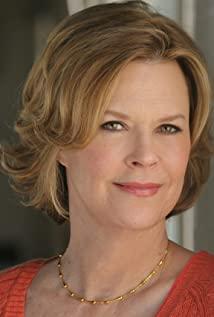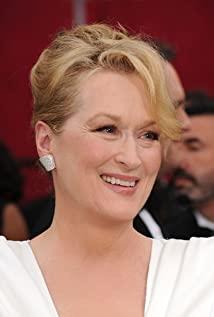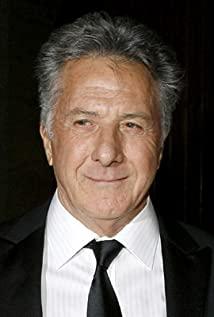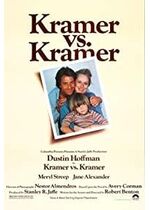-
Bonnie 2022-03-27 09:01:05
It stands to reason that no one can match this little boy's acting skills. This kind of family drama has always been a child's brilliant, but there is no way, his parents are legendary actors, and they are...
-
Dovie 2022-03-27 09:01:05
Good Inciting Incidents (including their timing), constant conflict, reversal of values, and the foreshadowing of the penultimate courtroom scene allow the film to avoid the "negative" impact of the love factor, so that the simple story The climax of the last scene is full of real...
-
Dovie 2022-03-27 09:01:05
Really beautiful and real. The story is very simple. It reflects the various problems of family, couples and children in the United States at that time. I can't believe it was a film in the 1970s. This film was a huge winner at the 52nd Oscars, and all the male and female protagonists were nominated. The acting skills of Dustin Hoffman and Aunt May are textbook-level. That long-lost hug at the end was really...
-
Bell 2022-03-27 09:01:05
So wonderful, even though the movie mainly shows the life of the father and son, it shows the relationship between the three people perfectly. Not being able to take care of family and work is probably the sadness of all advertising people in the world....
-
Tess 2022-03-27 09:01:05
The perfect story illustrates the "back to family" orientation. Textbook level explains that "conflict" is not necessarily a crash, "opponent" is not necessarily an evil villain, and "dilemma" is not necessarily a dead...
-
Taryn 2022-03-27 09:01:05
The mother leaves, the father takes care of the son alone; the mother comes back and wants to take the son with him. Similar to the setting of "A Lang's Story", this family story theme is easy to resonate with the audience, and has achieved both box office and awards. Aunt Mei's role is relatively small, mainly representing the trend of awakening female consciousness, striving for independence and abandoning her husband and children. The observation point of parenting is mainly given to the...
-
Tia 2022-03-27 09:01:05
The feminist background is a big plus. Interestingly, it does not emphasize the perspective of "female". Instead, it only gives Joanna a certain prudent and subtle portrayal, and instead pays more attention to the differences in the family structure. From the title of the film Kramer vs. Kramer can see that while depicting the functional transformation of traditional father and mother images, the brush and ink on both sides are completely equal and...
-
Kristy 2022-03-27 09:01:05
The point of concern in the court is very subtle, [persistence] and [stability], and the ability of a marriage to maintain different positions on both sides. Why do couples have to leave to understand each other better? If it is related to the background of the film (feminist movement), then the film has risen a level. A woman who has left home finds peace of mind and a better version of herself, but at the same time, she is still unable to leave her...
-
Ned 2022-03-27 09:01:05
There are no fancy tricks, no loud and exciting scenes, ordinary family ethics drama, and it is the magic weapon of winning. Especially for middle-aged people with children, watching such a film is such a profound reality...
-
Jany 2022-03-26 09:01:04
Marriage is heavier than divorce. Fertility is scarier than abortion. A stable family always hides unexpected changes and conflicts. Man lives in diminishing scarcity, in universal and eternal scarcity. There is not enough in the world to enjoy. Not enough food, not enough justice, not enough love. When love passes by in a life of serenity and contentment, and desires are surrounded by overwhelming worries, once-loving couples experience palpable pain from boredom. So real marriage, than fake...
Kramer vs. Kramer Comments
-
Shakira 2022-03-23 09:01:40
Life will force us step by step to become masters.
I watched a film in the late 1970s, and it's a bit contrived to say that, and that's what the literary accent is like. The 1979 Oscar-winning film, The Kramers.
It is indeed a small-cost production of a big star. There are no big scenes. Most of them are interior scenes. The exterior scenes are... -
Evie 2021-11-13 08:01:24
"The Cramers": Beware of the sleeping lotus being awakened
Women's pursuit of independence has not become popular in recent years. If this trend of independence is attributed to feminism, then it will naturally go back to the eighteenth century. In 1848, the first feminist conference was held in Seneca Falls, New York. This conference gradually...
-
Billy Kramer: Daddy?
Ted Kramer: Yeah?
Billy Kramer: I'm sorry.
Ted Kramer: I'm sorry too. I want you to go to sleep because it's really late.
Billy Kramer: Daddy?
Ted Kramer: Now what is it?
Billy Kramer: Are you going away?
Ted Kramer: No. I'm staying here with you. You can't get rid of me that easy.
Billy Kramer: That's why Mommy left, isn't it? Because I was bad?
Ted Kramer: Is that what you think? No. That's not it, Billy. Your mom loves you very much... and the reason she left has nothing to do with you. I don't know if this will make sense, but I'll try to explain it to you. I think the reason why Mommy left... was because for a long time... I kept trying to make her be a certain kind of person. A certain kind of wife that I thought she was supposed to be. And she just wasn't like that. She was... She just wasn't like that. I think that she tried for so long to make me happy... and when she couldn't, she tried to talk to me about it. But I wasn't listening. I was too busy, too wrapped up... just thinking about myself. And I thought that anytime I was happy, she was happy. But I think underneath she was very sad. Mommy stayed here longer than she wanted because she loves you so much. And the reason why Mommy couldn't stay anymore... was because she couldn't stand me. She didn't leave because of you. She left because of me. Go to sleep now because it's really late, okay? Good night. Sleep tight.
Billy Kramer: Don't let the bedbugs bite.
Ted Kramer: See you in the morning light.
Billy Kramer: Daddy?
Ted Kramer: Yeah?
Billy Kramer: I love you.
Ted Kramer: I love you too.
-
Ted Kramer: Obviously, my wife and you have had numerous conversations about my shortcomings, which I have not been privy to, and I would love to sit here and talk to you; but, somebody has to bring home the bacon and I have a major presentation in the morning and I just got to get my work done.











